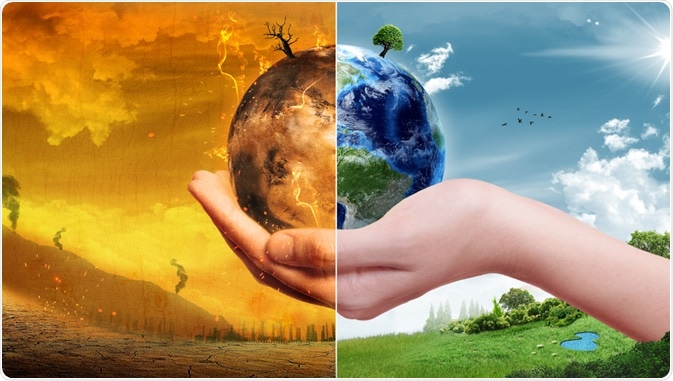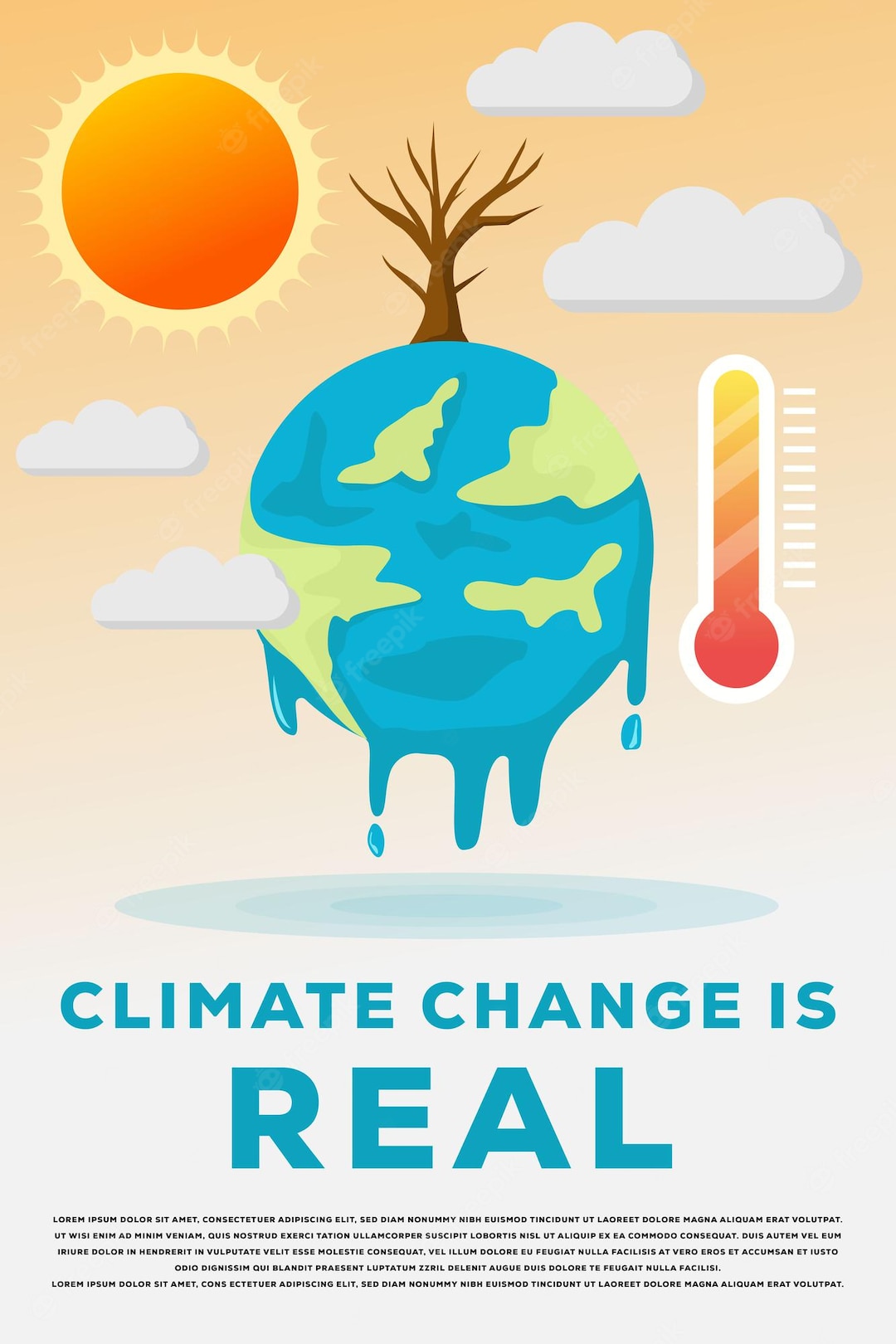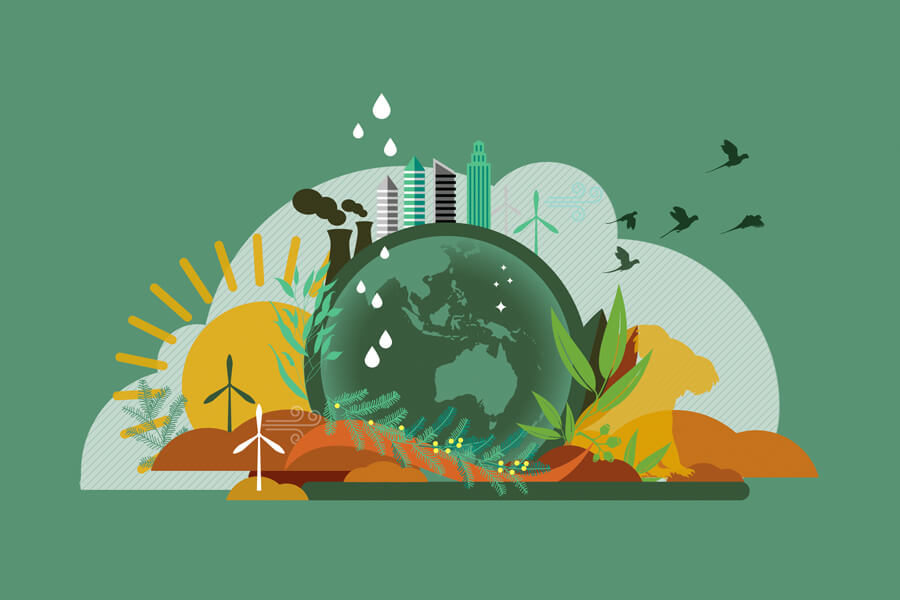Table of Content:
- Causes of Climate Change
- Effects of Climate Change
- Threats to Human Health
- Socioeconomic Impact
- The Urgency of Mitigation and Adaptation
- International Cooperation and Policy
- Individual Actions
Climate change, also known as global warming, is one of the most pressing challenges facing humanity in the 21st century. The Earth's climate is undergoing rapid changes due to the release of greenhouse gases into the atmosphere, primarily caused by human activities. As the consequences of climate change continue to unfold, it is imperative for societies worldwide to take decisive action to mitigate its impacts. This article explores the causes, effects, and potential solutions to combat climate change, emphasizing the urgent need for collective efforts to secure a sustainable future for generations to come.

Causes of Climate Change
The primary driver of climate change is the burning of fossil fuels, such as coal, oil, and natural gas, for energy production, transportation, and industrial activities. This releases vast amounts of carbon dioxide (CO2) and other greenhouse gases into the atmosphere, trapping heat and leading to a gradual increase in the Earth's temperature. Deforestation, another significant contributor, reduces the planet's capacity to absorb CO2, exacerbating the greenhouse effect. Methane emissions from agriculture, landfills, and livestock also contribute to global warming.
Effects of Climate Change
The consequences of climate change are already being felt worldwide and have far-reaching impacts on the environment, economies, and human well-being. Rising global temperatures lead to the melting of glaciers and polar ice caps, causing sea levels to rise. Coastal communities are at risk of flooding, displacing millions of people and threatening valuable ecosystems. Extreme weather events, such as hurricanes, heatwaves, and droughts, are becoming more frequent and intense, resulting in loss of lives and infrastructure damage. Biodiversity loss, disrupted ecosystems, and shifts in weather patterns affect agriculture and food security.

Threats to Human Health
Climate change poses substantial risks to human health, as it exacerbates various diseases and health conditions. Heatwaves can cause heatstroke and lead to heat-related deaths, while higher temperatures allow disease-carrying organisms, such as mosquitoes, to thrive and spread illnesses like malaria, dengue fever, and Zika virus. Air pollution, worsened by climate change, can lead to respiratory issues and cardiovascular diseases. Additionally, the mental health of individuals and communities can be adversely affected by the stress and anxiety brought on by climate-related disasters and uncertainties.
Socioeconomic Impact
The economic repercussions of climate change are immense. Crop failures and declining agricultural productivity threaten food supplies, resulting in food price spikes and potential social unrest. Extreme weather events and rising sea levels damage infrastructure, disrupt businesses, and reduce productivity. Developing countries, with limited resources to adapt, are particularly vulnerable to the adverse impacts of climate change, further widening the global inequality gap.
The Urgency of Mitigation and Adaptation
Mitigation and adaptation are the two critical approaches to addressing climate change. Mitigation involves efforts to reduce greenhouse gas emissions and limit the extent of global warming. This can be achieved by transitioning to renewable energy sources, improving energy efficiency, implementing sustainable land-use practices, and promoting afforestation and reforestation. Additionally, governments and industries must invest in research and innovation to develop clean technologies and sustainable solutions.
On the other hand, adaptation focuses on building resilience to the existing and anticipated impacts of climate change. This includes constructing climate-resilient infrastructure, implementing early warning systems for extreme weather events, promoting climate-smart agriculture, and fostering community-based initiatives to cope with changing environmental conditions.

International Cooperation and Policy
Addressing climate change requires global cooperation and policy action. The Paris Agreement, adopted in 2015, is a significant milestone in the global effort to combat climate change. Under this agreement, countries pledged to limit global warming to well below 2 degrees Celsius above pre-industrial levels, with the aspirational goal of limiting it to 1.5 degrees Celsius. Governments, businesses, and civil society must work together to fulfill their commitments and implement policies that foster sustainability and environmental responsibility.
Individual Actions
While international and governmental actions are vital, individual efforts also play a crucial role in mitigating climate change. Simple lifestyle changes, such as reducing energy consumption, using public transportation, adopting a plant-based diet, and practicing waste reduction and recycling, collectively make a significant impact. Raising awareness about climate change and engaging in sustainable practices can create a ripple effect, inspiring others to take action as well.

Climate change is an existential threat that demands immediate and sustained action from all sectors of society. The evidence is clear – we are already witnessing the devastating impacts of global warming on the environment, economies, and human health. To secure a sustainable future for ourselves and future generations, we must collectively embrace the urgent need to mitigate greenhouse gas emissions, adapt to changing environmental conditions, and foster international cooperation in combatting climate change. By making conscious choices and embracing innovative solutions, we can forge a path towards a resilient and sustainable planet, ensuring that the legacy we leave behind is one of hope and stewardship for our shared home, Earth.


You must be logged in to post a comment.